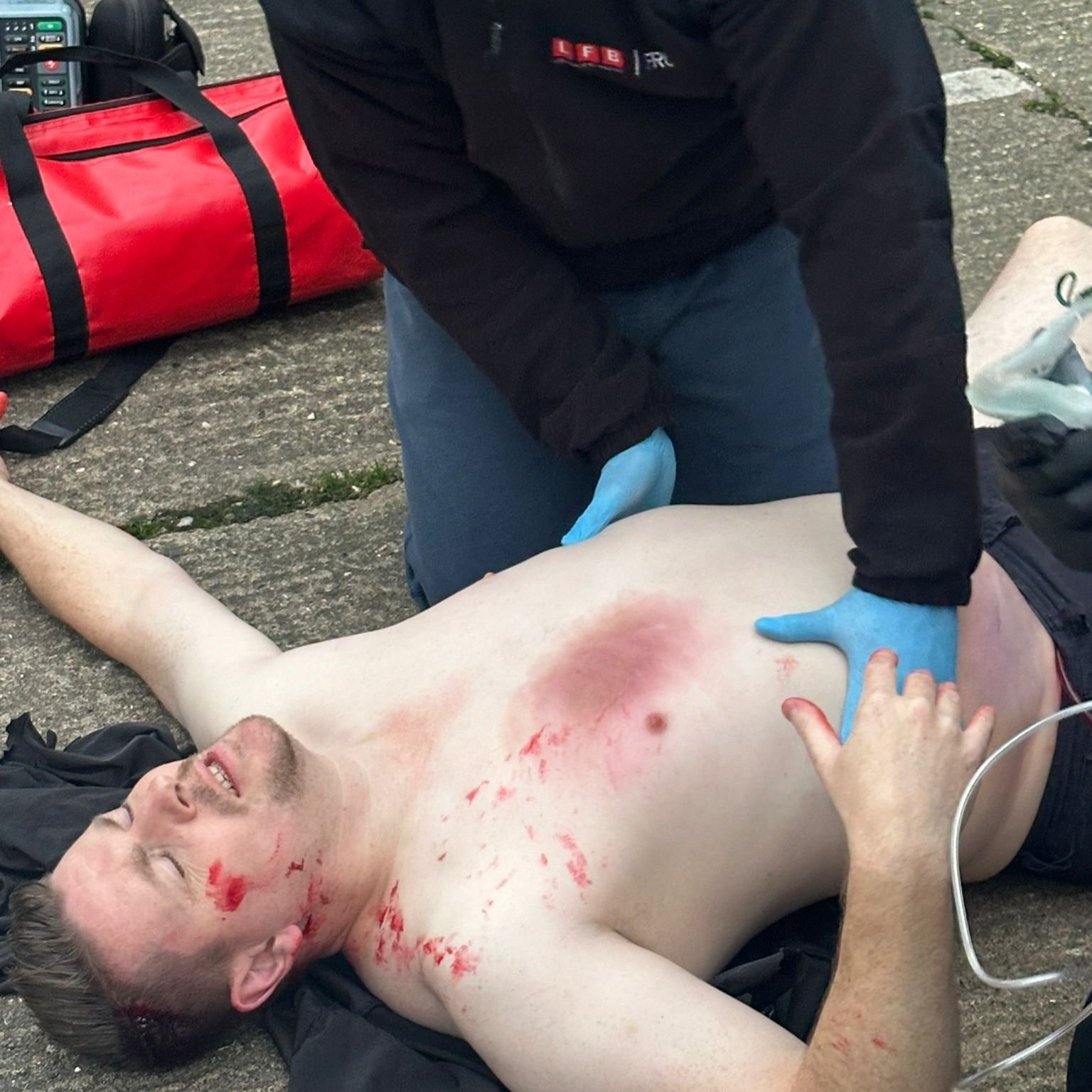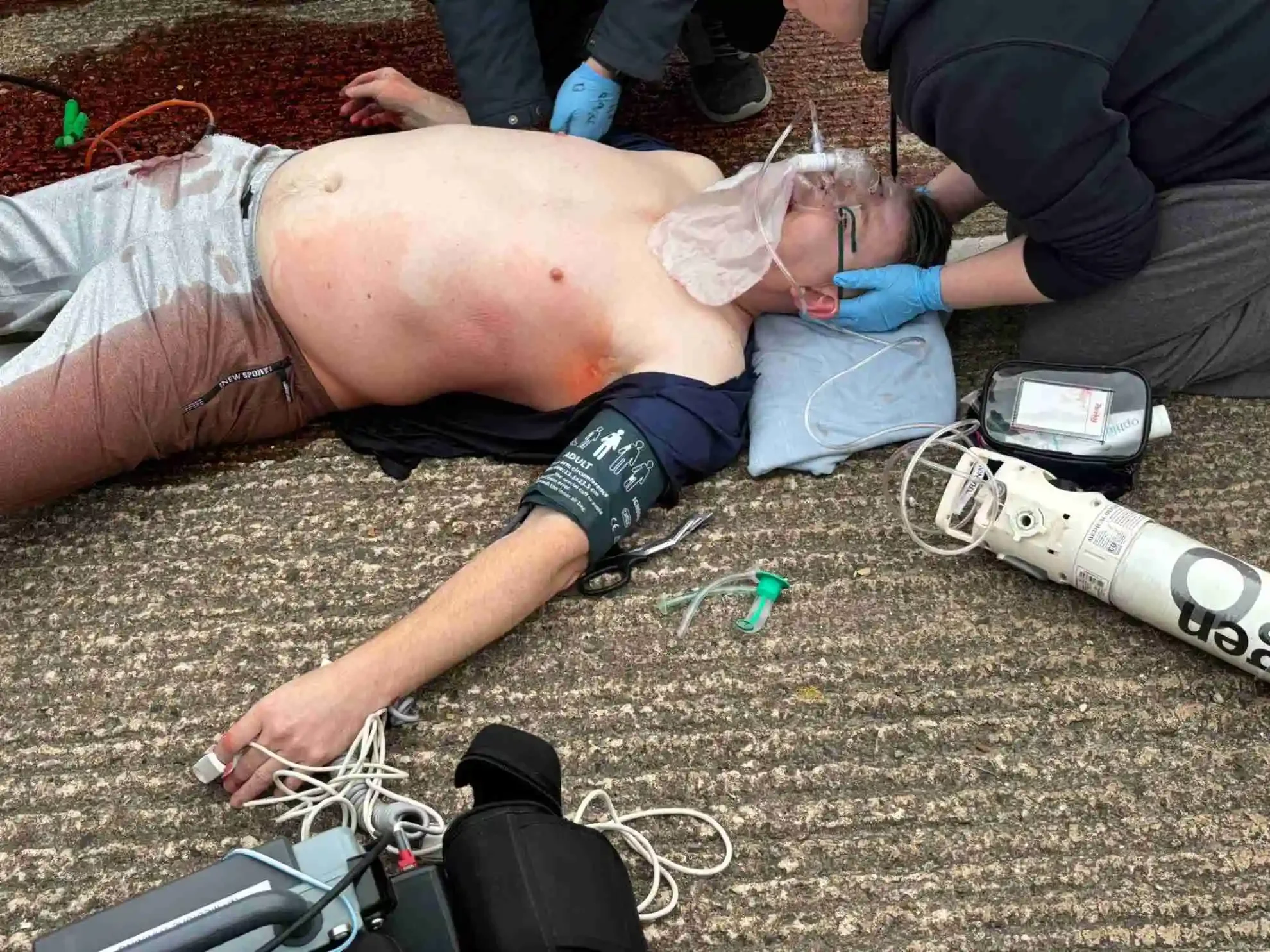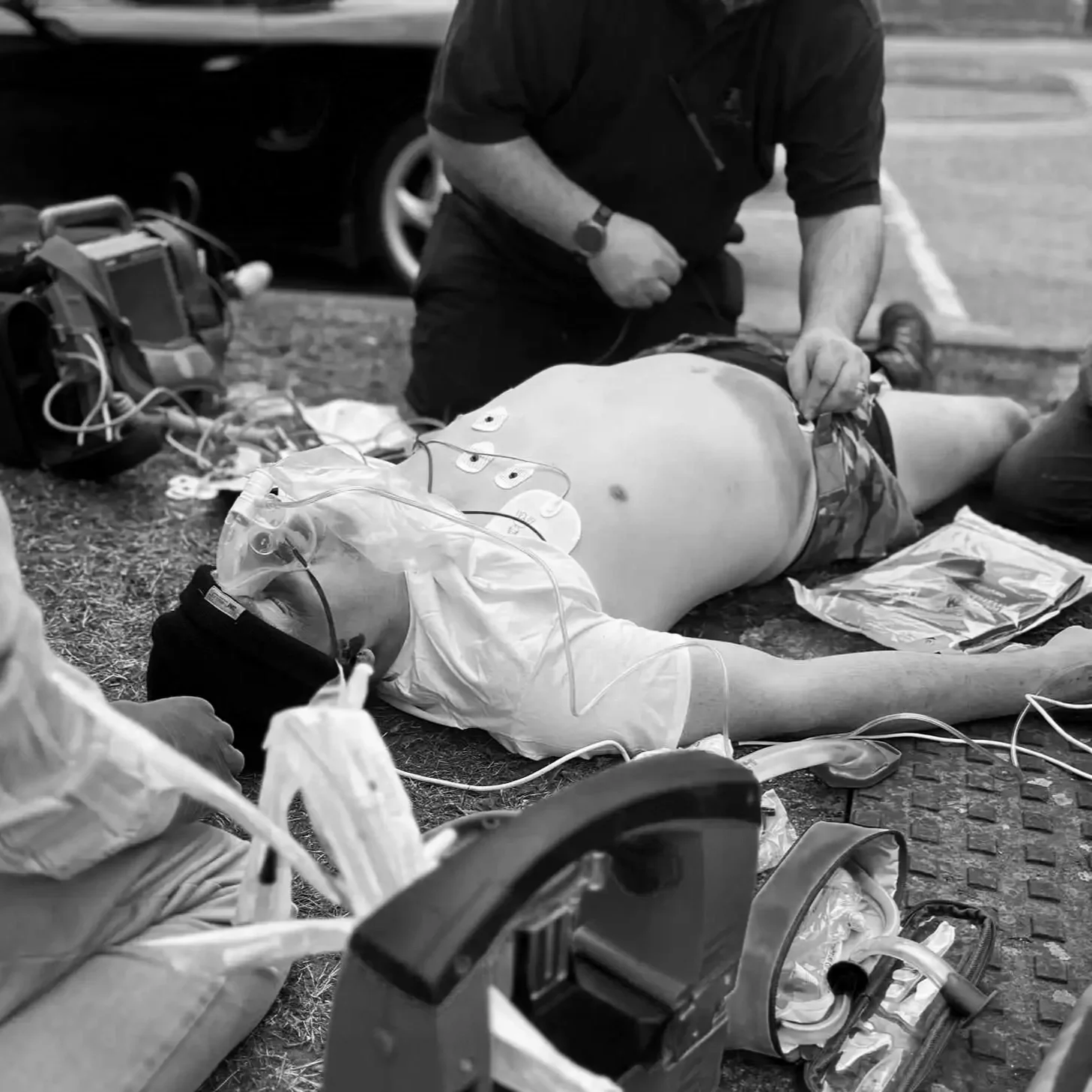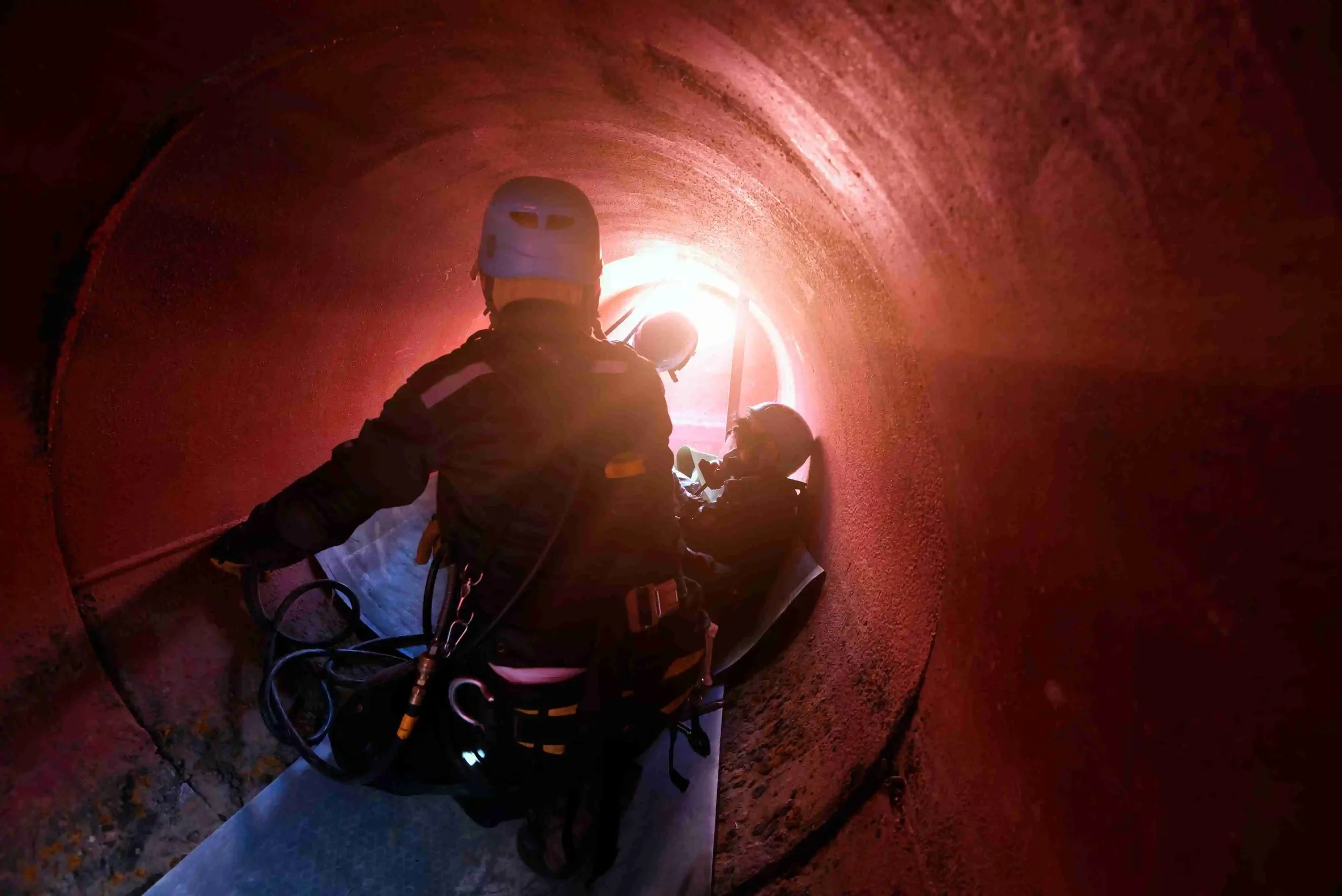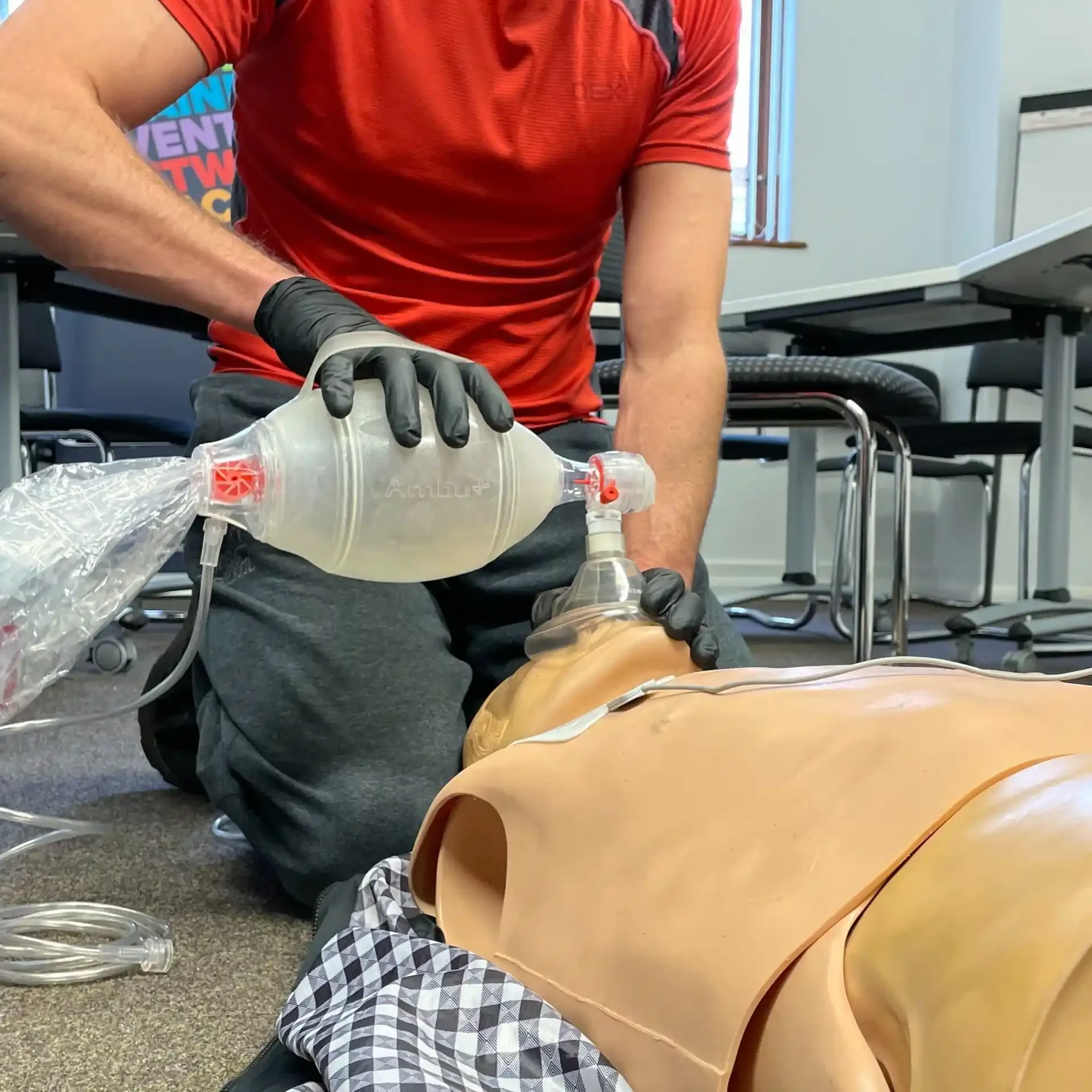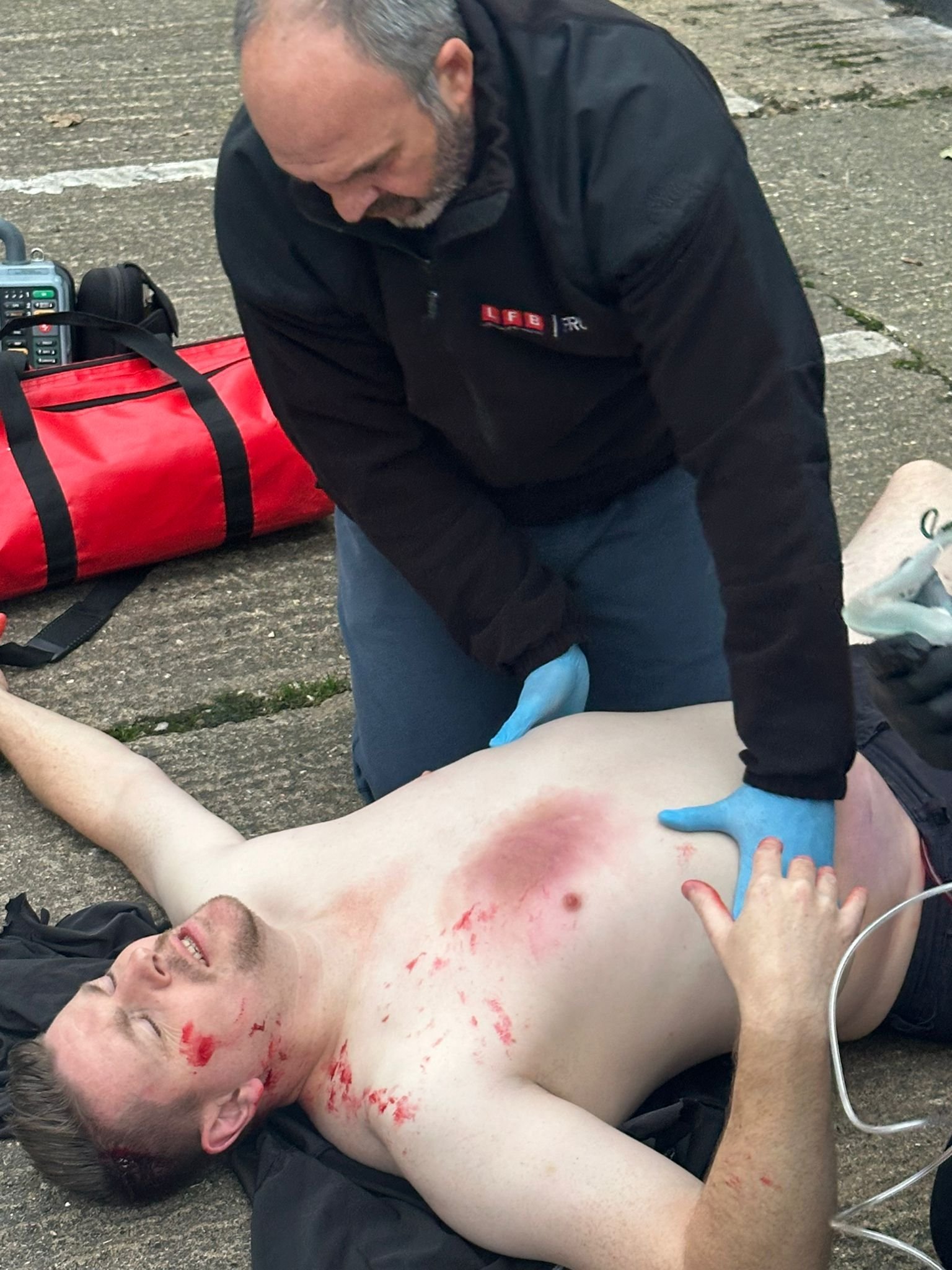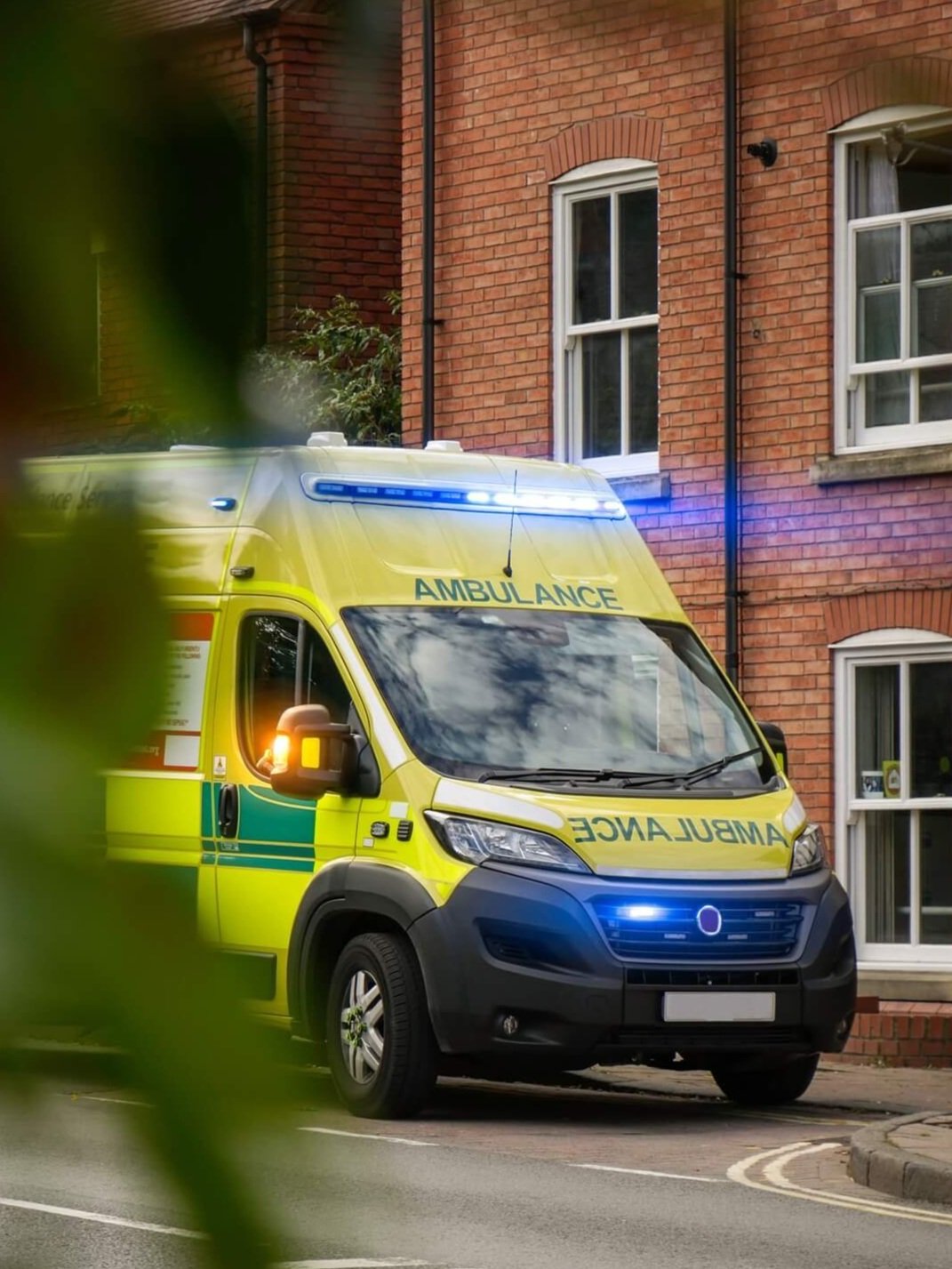FREC3 to FREC 4? Here's What You Actually Need to Know
If you've just done your FREC 3, chances are someone’s mentioned FREC 4 to you. Maybe it was your trainer. Maybe it was a mate working festivals or on a CP team. Maybe your employer’s asking for it and you’re now Googling what’s involved and quietly panicking.
Let’s clear a few things up.
Yes, it’s a step up. Yes, there’s more to it than FREC 3. But it’s doable — and in our experience, most people actually enjoy it once they get going (even the ones who claim they’re “not academic”).
You don’t need a science degree. You don’t need to memorise Latin. You will need to apply yourself, put a bit of effort in, and get stuck in — but if you’ve got a bit of experience behind you and you're willing to engage, you’ll be fine.
This post breaks down what’s different, what’s expected, and why FREC 4 is worth doing — especially if you’re heading towards Close Protection, events, or more senior pre-hospital roles.
So what’s actually different from FREC 3?
FREC 3 is trauma-heavy. Lots of hands-on, lots of bleeding, splinting, suctioning and chucking NPA's and OPA's in.
FREC 4 shifts gears. You’ll still cover trauma, but it’s more medically focused. You’ll dive deeper into anatomy, learn to recognise ECG rhythms, manage medical emergencies, and start thinking like someone who’s responsible for more than just scooping and running. You’ll also get to grips with Entonox (gas and air) — what it is, how it’s used, and when it’s appropriate to administer.
You’ll cover:
Anatomy & physiology (respiratory, cardiovascular, nervous, GI and reproductive systems)
Medical emergencies like sepsis, stroke, mental health, abdominal pain, paediatrics, maternity care
ECG recognition – spotting the common rhythms and knowing what they actually mean
Major incidents and triage – the practical side of dealing with chaos and making quick decisions
Assisting clinicians – including vascular access and infusions (you won’t be inserting lines, but you’ll know how to support those who are)
You’ll also sharpen your patient assessment skills, using structured frameworks like ABCDE, pain scores, and proper clinical handovers.
What about assessments?
You’ll do:
Two invigilated exams
Anatomy and Physiology & Clinical scenario (written - no multiple choice, but it’s not an essay either)
ECG Recognition (also written)
Three workbooks – one per unit, submitted after the course
Several practical assessments – trauma, observations, ILS, and assisting clinical interventions
Nothing here is impossible — and most of it builds on what you did at Level 3. If you engage during the course and ask questions, you’ll be fine.
Can I fail the FREC 4 workbooks?
The short answer is yes it’s possible. But that doesn’t mean it’s game over.
If your workbook’s missing key bits, doesn’t show you fully understand what you're writing about, or just doesn’t meet the standard, it’ll get referred. That just means we’ll send it back with feedback and ask you to have another go.
Honestly, that happens all the time. You’re not being marked like it’s a university dissertation — but you do need to explain things clearly and show how you’d apply them in practice. Vague answers or one-liners like “I’d check for signs of shock” won’t cut it.
Here’s what we do:
Give you clear, practical feedback — none of this “see criteria 2.4.3” nonsense
Talk you through what’s missing if you’re stuck
Help you get it right — without spoon-feeding
We don’t expect perfection. We do expect effort. And we’ll back you the whole way through.
Do I need to be academic to pass FREC 4?
Nope. You just need to turn up, engage, and ask when you don’t understand something.
We teach FREC 4 the way we teach everything else: with real scenarios, real clinical insight, and plenty of space to get stuck in. You won’t be sat in silence scribbling notes while someone talks at you for 5 days straight.
If you've done FREC 3 with us, you'll already know our sessions are realistic, a bit chaotic (in a good way), and focused on actual, usable clinical skills. FREC 4 is no different. We just go a bit deeper.
What support do I get after the course?
We don’t just wave you off on day five and hope for the best. We stick around.
Got questions about the workbooks? Ask us.
Need a second pair of eyes on your answers? No problem.
Had your submission referred? We’ll guide you through what to fix.
We don’t leave anyone behind. That’s not just marketing fluff. We mean it.
Is FREC 4 worth it?
Yes. If you want to do more, be taken more seriously, and get paid more — it absolutely is.
Better rates – Especially in event work, private medical, and CP
More clinical credibility – Shows you’re not just turning up for the T-shirt
Progression – Opens doors to Level 5, AAP, and even HCPC routes
More and more employers are making FREC 4 a minimum standard. Whether it’s Close Protection roles, film set medics, or festivals with multi-agency teams, FREC 4 is becoming the benchmark.
What if I haven’t done FREC 3 — but have other experience?
If you're a Community First Responder, firefighter, Coast Guard medic, or you've completed qualifications like FPOS, FPOS Intermediate, or RTACC, you might be eligible for the 2-day FREC 3 RPL course.
That’s a Recognition of Prior Learning route which gives you credit for the skills and experience you already have. Complete that successfully, and you’re eligible to move straight onto FREC 4.
If you’re unsure whether you qualify for the RPL route, just get in touch. We’ll have a proper conversation with you and point you in the right direction.
Or you can complete our online eligibility checker.
In some cases, depending on your background and qualifications, you may even be able to go directly onto FREC 4. For example, if you’re a Year 3 student paramedic, a CMT 1 Combat Medic, or hold a clinically equivalent qualification with active experience, you may be able to bypass FREC 3 altogether.
The best thing to do is give us a ring. We'll have a proper chat and figure out the best route for you based on what you've already done.
One book we always recommend
If you’re doing FREC 4, do yourself a favour and grab a copy of Ambulance Care Practice by Richard Pilbery. It’s pretty much the bible for pre-hospital care and will save you loads of time (and stress) when tackling your workbooks.
FAQ’s
-
Yes, if you’ve got your CPD (118 hours between qualifications) and feel ready. We can advise.
-
No. We teach it in a way that makes sense — not like a GCSE biology resit.
-
Short answer, scenario-based questions. No multiple choice, but also no essays. You’ll be fine.
-
Yes — you’ll need to pass all the written exams, complete your practical assessments, and meet the standard in your workbooks. But we’ll support you throughout. Honestly, the only way to properly fail is to ghost us and never submit anything. Engage with the course and get your work in, and we’ll get you through it.
-
Yes. FREC 4 is becoming the go-to qualification for anyone serious about pre-hospital roles, especially in security, events, or private care.
Final word
If you’re thinking about stepping up from FREC 3 to FREC 4, don’t let the myth of it being "too academic" hold you back.
You can absolutely do it. And we’ll help you all the way.
Ready to book, or still got questions? Drop us a message. No pressure. Just straight answers.


